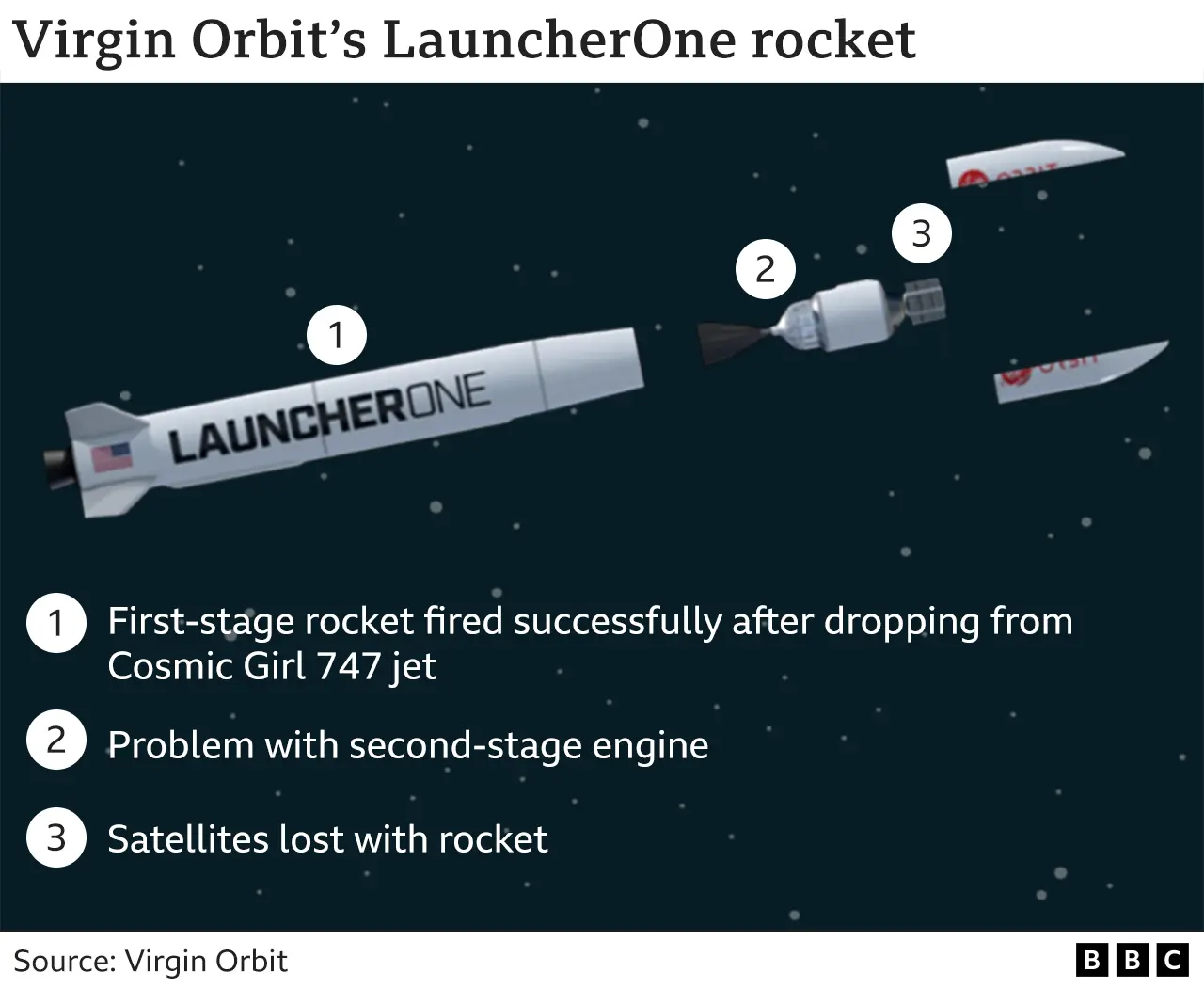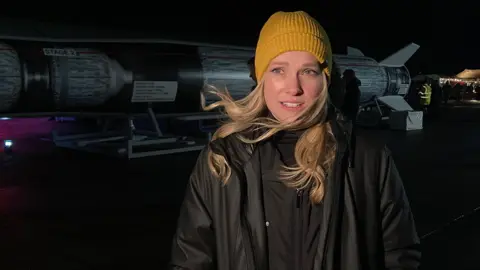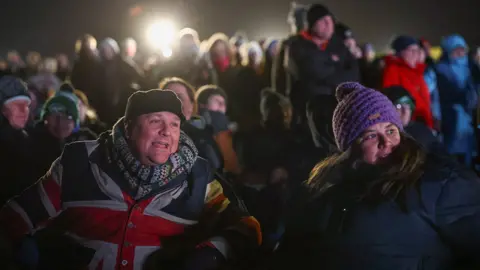UK space launch: Historic Cornwall rocket launch ends in failure
The first ever satellite mission launched from UK soil has ended in failure.
A jumbo jet operated by the American Virgin Orbit company carried a rocket out of Newquay, Cornwall, to release it high over the Atlantic Ocean.
The rocket ignited and appeared to be ascending correctly. But word then came from the company that the rocket had suffered an "anomaly".
The satellites it was carrying could not be released and were lost.
Cosmic Girl, the carrier 747 jet, returned safely to base.
The mission had been billed as a major milestone for UK space, marking the birth of a home-grown launch industry. The ambition is to turn the country into a global player - from manufacturing satellites, to building rockets and creating new spaceports.
Deputy CEO of the UK Space Agency, Ian Annett, said it showed "how difficult" getting into orbit actually was - but predicted further launches within the next 12 months.
"We get up, we go back, we try again, that's what defines us," he told BBC Radio 4's Today programme.

Matt Archer, the agency's launch programme director, said the issue occurred in the upper segment of the rocket.
"The second-stage engine had a technical anomaly and didn't reach the required orbit," he explained.
"That's now part of an investigation by Virgin Orbit and a number of government departments," he told BBC News.
Mr Archer could not confirm whether the rocket had fallen back to Earth but said that if it did, it would have come down over unpopulated areas.
The satellites were insured so their manufacturers and operators will be compensated.
The Virgin Orbit system is relatively new. It's only been in operation since 2020.
It suffered a failure on its maiden outing but this was followed up by four successful flights.
Dan Hart, the CEO of Virgin Orbit, said: "We are mindful that we failed to provide our customers with the launch service they deserve. The first-time nature of this mission added layers of complexity that our team professionally managed through; however, in the end a technical failure appears to have prevented us from delivering the final orbit.
"We will work tirelessly to understand the nature of the failure, make corrective actions, and return to orbit as soon as we have completed a full investigation and mission assurance process."

Rockets have been sent to space from the UK before, but not to put satellites in orbit. Those earlier efforts were part of military exercises or for atmospheric research, and the vehicles involved came straight back down.
Internationally renowned for making satellites of all sizes, the country's space industry has always had to send its products to foreign spaceports to get them into orbit.
Adding a launch capability means the sector will in future be able to do everything from first design through to mission operations.
More than 2,000 spectators and VIPs had gathered at Cornwall Newquay Airport to watch the 747 leave. They drifted away as news filtered through that something had gone wrong.
 Reuters
ReutersMonday night's failure is a blow to all those involved: Virgin Orbit, the satellite owners and Spaceport Cornwall which organised the flight.
"It's been really emotional," said Melissa Thorpe, who heads the spaceport.
"We put so much into this, everybody has, so it is absolutely gutting. But it's space and the cliché is it's hard. We know it's hard."
She added that the first part of the mission - the drop from the plane - had gone to plan and she was confident they would be able to embark on another mission in the "near future".
Mr Hart from Virgin Orbit went to commiserate with his team in Cornwall, accompanied by UK science minister George Freeman.
In a tweet, the minister made reference to the famous quote from 1960s US President John F Kennedy: "We do these things not because they are easy but because they are hard."

